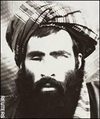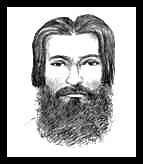Senior al Qaeda and Afghan Taliban leaders are reported to have met with Pakistani Taliban leader Baitullah Mehsud to advise him to move his group’s operations into Afghanistan and halt attacks against the Pakistani state.
Several meetings were said to have been held last week after an 11-man delegation of al Qaeda and Taliban heavy hitters arrived in Waziristan to deliver a request from Mullah Omar, the Amir al Mumineen, or the leader of the faithful in Pakistan and Afghanistan, according to a report in The Nation.
The Taliban dispatched Sirajuddin Haqqani, the powerful military commander of the Haqqani Network, and Abdul Hakeem Sharaee and Mir Ahmad Jan Hashemi, two senior deputies of Mullah Abdullah Zakir, the Taliban’s senior-most military commander in southern Afghanistan who was released from Guantanamo Bay.
Al Qaeda sent Abu Yahya Al Libi, one of al Qaeda’s senior ideologues and a representative of the religious committee, and Abdul Haq Turkistani, the leader of the Eastern Turkistan Islamic Party, an al Qaeda-linked group that is made up of Uighurs who fight the Chinese government. Abdul Haq serves on al Qaeda’s Shura Majlis, or executive council.
The joint Taliban and al Qaeda delegation reportedly advised Baitullah to halt the Pakistani Taliban’s attacks against the military and government and to focus his energy in Afghanistan. The leaders believe Baitullah’s terror attacks against the Pakistani state are putting undue pressure on the Taliban in both Pakistan and Afghanistan and threaten to damage the overall Taliban movement.
The Taliban and al Qaeda leadership are concerned that even a limited Pakistani military offensive in the tribal areas will put their training camps and safe houses throughout the border regions at risk as the Afghan Taliban is gearing up for a major fight with Coalition and Afghan forces.
|
|
|
Baitullah Mehsud from a recent Taliban video. |
Baitullah was reportedly advised to dodge the nascent Pakistani Army offensive in South Waziristan and move the bulk of his forces into Afghanistan to carry out attacks against Afghan and Coalition forces.
The Taliban and al Qaeda delegation was also reported to have advised North Waziristan Taliban leader Hafiz Gul Bahadar to provide safe passage for Baitullah and his Taliban army.
Baitullah is said to have rejected the request from Mullah Omar, responding, “Mullah Omar is our Amir but like Afghanistan, they [the Pakistani Taliban] are determined to continue resistance in Pakistan.”
Baitullah also met with the shura of the United Mujahideen Council, the alliance with South Waziristan Taliban warlord Mullah Nazir and powerful North Waziristan leader Hafiz Gul Bahadar. Nazir, who is being pressured by the Pakistani government to sit out the operation against Baitullah, is said to have not attended, according to the Islamabad Ausaf, a pro-jihadi Urdu-language newspaper. Bahadar offered Baitullah safe passage through to Afghanistan, as advised by the al Qaeda and Taliban delegation.
US strikes as meetings underway
US and Pakistani forces struck inside South Waziristan three times during the same week that the high-level al Qaeda and Taliban leaders met with Baitullah. The meetings are said to have begun early last week and ended on June 16, while US and Pakistani warplanes struck on June 14, 15, and 18.
US intelligence officials refused to comment on the targets of the strikes. But the target of these strikes appears to have been the Taliban and al Qaeda delegation gathering in Waziristan.
On June 14, US predators struck in Baitullah’s hometown of Makeen in South Waziristan. The next day, Pakistani Air Force also struck in Makeen. Tahir Yuldashev, the leader of the Islamic Movement of Uzbekistan, was reported to have been wounded in the attack. Three days later, US Predators conducted attacks in two towns in Mullah Nazir’s territory in South Waziristan.
Yuldashev is a senior leader in al Qaeda’s allied network in Pakistan’s tribal areas, and is a close ally to both Baitullah Mehsud and Mullah Nazir. He likely was to attend the meeting with Baitullah.
The timing of last week’s attacks points to an attempt to target al Qaeda and the Taliban’s senior leadership. Prior to the June 14 Predator strike, the last US attack inside Pakistan’s tribal areas took place on May 16. The US has been under internal and external pressure to end the airstrikes in Pakistan.
Baitullah and Fazlullah may be in North Waziristan
While Baitullah has said he would not end attacks against the Pakistani state, a report indicates he may have partially followed the delegation’s advice and moved from South Waziristan to take shelter in Mir Ali, an al Qaeda and Taliban stronghold in North Waziristan.
Baitullah was accompanied in Mir Ali by Swat Taliban leader Mullah Fazlullah and his spokesman and military commander Muslim Khan, The Nation reported. Fazlullah and Khan fled to Makeen in South Waziristan after the Pakistani military moved into Swat to oust the Taliban. They have since relocated to Mir Ali with other Taliban leaders after the government telegraphed the South Waziristan operation.
US military intelligence officials contacted by Long War Journal are concerned that Baitullah may leave Pakistan and move his forces into eastern Afghanistan to fight Coalition forces.
Fazlullah and the other 20 senior-most Taliban leaders in Swat have so far evaded the Pakistani military’s attempts to round them up.
Meeting provides insights on inner workings of al Qaeda and the Taliban
The high-level meeting between Baitullah and the Afghan Taliban and al Qaeda leaders sheds more light on the close relationship of the Pakistani and Afghan Taliban, and their dealings with al Qaeda.
The delegation went to Pakistan to forge a consensus with Baitullah in order to get him in line with the overall organization’s goals. Siraj is said to still be working to convince Baitullah to accede to Omar’s wishes. Baitullah was pressured to redirect his energies towards Afghanistan, but he was not ordered.
Siraj Haqqani’s role as a mediator between the groups also highlights his prominent role within the overall movement. Siraj and his father have close links to the senior leadership of both the Taliban and al Qaeda. His network operates on both sides of the border, and has significant pull in the Taliban affairs in both countries.
Siraj played a similar role back in 2007 when he and Mullah Dadullah Akhund, the former Taliban military commander in Afghanistan, and Baitullah negotiated a truce between Mullah Nazir and Uzbeks allied with the Islamic Jihad Union.
The meeting also dispels a slew of reports that have cropped up since late 2007 that claimed Baitullah was expelled from the Taliban movement. These rumors still floated even as Baitullah allied himself with Nazir and Bahadar and continued to shelter al Qaeda and support the Afghan Taliban.
Finally, the meeting highlights the relative unimportance of two Pakistani Taliban leaders in opposition to Baitullah. Qari Zainuddin Mehsud and Haji Turkistan Bhittani both were excluded from the meeting, even though they claim to be close to Mullah Omar and say they are the true Taliban representatives in South Waziristan.
Despite reports of the growing influence of Zainuddin and Turkistani, the Mehsud tribal leaders are hesitant to back them as they are seen as being in bed with the government. The Pakistani government has been supporting Zainuddin and Turkistani despite their promises to wage jihad in Afghanistan, and not Pakistan. Zainuddin even put up recruiting posters in the district of Tank with photos of Abdullah Mehsud, his predecessor and a former detainee at Guantanamo Bay who fought in Afghanistan. Pakistani security forces killed Abdullah during a raid in Zhob in Baluchistan province.
Mehsud tribal leaders put little stock in Zainuddin’s value. The leaders believe that if Baitullah is killed, his deputy Qari Husain Mehsud will take his place. Qari Husain is notorious for recruiting and training children for suicide attacks in Pakistan and Afghanistan.











12 Comments
Just a thought, In Islamic state once a commander gives his pledge to the leader of faithful, he has to abide by the orders. This is a very important code of conduct in Islam, obeying the orders. Baitullah, even if he disagrees with Mullah Omer will not go against his orders. This news sounds more like propaganda than actual facts.
Plus, How can Baitullah forces move their efforts to Afghanistan when we all know that Pakistan tribal area is the ultimate recovery and reloading grounds for all the Mujahedeen’s in Afghanistan. Pakistani Taliban will fight on by hook or crook Pakistani Military backed by US. End of these tribal grounds will have greater effects on Afghan Taliban efforts eventually. Mullah Omer will never give such a command and on top of that Pakistani Taliban will not give up their 7 years struggle with the Pakistani Military keeping in mind that they have defeated the military thrice before in 04,05 and 08.
No, It’s not propaganda.
It doesn’t take a genius to figure out the game these guy’s are playing. These organizations are semi-autonomous by design. Each organization has a purpose and a broadly set mission. If any organization gets itself into too much trouble or fails the others will fight-on independently. Multiple organizations can work separate conflicts, separate missions within a conflict, or even be at crossed purposes if need be.
The broad mission of Baitullah and Fazlullah has been to undermine the Pakistani government. At the same time the Haqqani Network works with sympathetic elements within the ISI and Pakistani military. The Afghan groups have their own priorities as well. I wouldn’t trust Mehsud or Bhittani either. Frankly, I suspect Mehsud and Bhittani are nothing more than a backup plan in case the other groups get into serious trouble. If things get too hot the militants can always cooperate with the government for a time, until things blow over.
The Taliban’s bid to quickly undermine the Pakistani government has failed. All the crazy assassinations and bombings have backfired and have poisoned much of the support that the Islamists had within the Pakistani populous. The Pakistani army has reacted in force. In reaction, Fazlullah and Baitullah are being asked to get out of the way, or at least “sort of”
No, It’s not propaganda.
It doesn’t take a genius to figure out the game these guy’s are playing. These organizations are semi-autonomous by design. Each organization has a purpose and a broadly set mission. If any organization gets itself into too much trouble or fails the others will fight-on independently. Multiple organizations can work separate conflicts, separate missions within a conflict, or even be at crossed purposes if need be.
The broad mission of Baitullah and Fazlullah has been to undermine the Pakistani government. At the same time the Haqqani Network works with sympathetic elements within the ISI and Pakistani military. The Afghan groups have their own priorities as well. I wouldn’t trust Mehsud or Bhittani either. Frankly, I suspect Mehsud and Bhittani are nothing more than a backup plan in case the other groups get into serious trouble. If things get too hot the militants can always cooperate with the government for a time, until things blow over.
The Taliban’s bid to quickly undermine the Pakistani government has failed. All the crazy assassinations and bombings have backfired and have poisoned much of the support that the Islamists had within the Pakistani populous. The Pakistani army has reacted in force. In reaction, Fazlullah and Baitullah are being asked to get out of the way, or at least “sort of”
Neo, I agree, that is pretty much my view on this. Some people I’ve spoken to about this also share this view.
Had Baitullah & Fazlullah succeeded, Omar & Osama would have been pleased. Since they’ve overreached, the brass is dialing them back and figuring out a way to preserve forces and fight another day.
Buner was definitely a strategic overreach, had Sufi kept his mouth shut and Fazlullah not pushed into Buner, the Taliban would be sitting pretty right now.
Now the question is how seriously the Pakistani government pushes back. I have been very skeptical but the past month has been promising. I don’t believe this can be sustained over time but hope to be proven wrong.
I have the same view of Zainullah and Bhuttani, right now they are on the outside. But they can be elevated if required.
Since you guys have great understanding on the war. I have heard a misconception mostly in the secular masses of Pakistani ppl that Baitullah in an American agent also funded by India and Israel? So basically he is creating chaos in Pakistan to destabilize the country and to get rid of Pak Nukes. How true is that? Is Baitullah working along with Omer, Osama pushing for Sharia, Khilafah etc or is he an agent for money?
I must add that I do NOT think this is some sort of grand conspiracy thought out before hand. The grand plan is more ideological and generalized in form. New organizations and plans are often started out as trail balloons on a small scale. If they are successful they widen in scope and are given more resources. Larger scale organizations often start out as an amalgamation of resources and smaller groups with a larger purpose in mind. The Taliban itself started out this way back in the early 90’s. These organizations are much more organic in structure. They grows, change, and adapt. Most of all, they keep trying.
The Pakistani effort grew out of the initial failure of the Afghani Taliban in 2001-2002. In 2004 the Pakistani government was very weak in pursuing the Taliban in Waziristan. The Taliban saw an opportunity and quickly capitalized with great success. They hammered and intimidated weak frontier forces that didn’t want to fight. Had they continued to do so they probably would be in a much better position right now.
I think their biggest mistake was to transfer Iraqi theater shock tactics to Pakistan. Assassinating Bhutto was a big mistake. Bombing Shiites and cricket teams is just a pointless distraction. Well, if you recruit a bunch of criminals and psychos, look what you get.
Their other great weakness is they won’t play conventional politics. If they had played bridesmaid to PML-N and the religious parties, they could have had a strong position in a very Islamic government. The Islamists are too good for “real world”
You keep saying that Maulvi Nazir is not being target but there is eveidence to prove otherwise….
http://www.washingtonpost.com/wp-dyn/content/article/2009/06/21/AR2009062100352.html
Its excellent to see you gentlemen discussing real world politics. My disagreement would be on Al Q’s real long term objective. To me has it always seemed to be to destroy the United States economic capacity to dominate the Middle East. You gentlemen believe it is to set up an ultra Wahabite government across Afghanistan and Central Asia that will sweep through Pakistan, Iran and Syria to confront Israel. That seems apocalyptic to a level I find difficult to believe. You gentlemen may be more religious than I, but I doubt such dangerously competent foes are planning such a fantastical empire in the literal sense.
And in relation to Mr Roggio’s assesment of Pakistani forces pushing into the Waziristans; pushing against who? Baitullah Mehsud? Is he even there and not already in Birmal town of Paktika province?
And what do you expect will be acheived by a “routing” of Baitullah’s faction? How would you measure such a “victory”? With body counts of his men, or with the administrative integration of North and South Waziristan into NWFP and Pakistan, with the prerequisite 10-12,000 policemen like they are doing in Swat?
And we do know that Pakistan will not go after Hekmatyar, Haqqani (at least Jalaludin) and Mullah Omar. What do you expect will be the political denouement of American withdrawal viz a viz their integration into Afghanistan’s political structure?
The Thunder Run has linked to this post in the blog post From the Front: 06/22/2009 News and Personal dispatches from the front and the home front.
Al-Q has been very clear about their long term goals, even as they have been highly incompetent about reaching those goals.
The results thus far speak for themselves.
Clearly somebody(s) of a less then friendly (to the West) persuasion is in residence in the Waziristans. Routing Baitullah’s faction reduces the number of available Al-Q gunmen and charismatic leaders by just that much, and that cannot be a bad thing.
I don’t think anybody has any idea of whom the Pakistani government is going to go after next, least of all the Pakistani’s themselves. But something tells me that the Pakistani government would trade Mullah Omar straight up for a dozen used F-16’s, if they could lay hands on him at the moment.
YOU
BETCHA,
R
worried_paki,
There has been no talk of moving against Nazir (and the Pak leadership are not ones for keeping a secret), there is no significant movement against Nazir’s regions, and there are credible reports that the government is negotiating with him.
I did see the report that artillery shells were lobbed at an office of Nazir’s, but it is not clear where this happened. My understanding is that this took place int he context of clearing the Wana Jandola road. At the moment this is an isolated incident.
But this does bear watching.
The guerilla war in Swat will begin again. Just like the Swati talibs defeated the pakistani military FC forces in 2007/08, after withdrawing earlier under pakistan military offensive. as for mehsud the govt is using propaganda war against him to stop his growing influence in other agencies. he is not an indian agent. The guerilla war from the taliban point of view wont end.